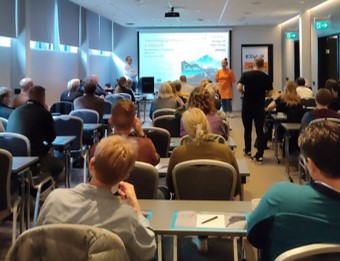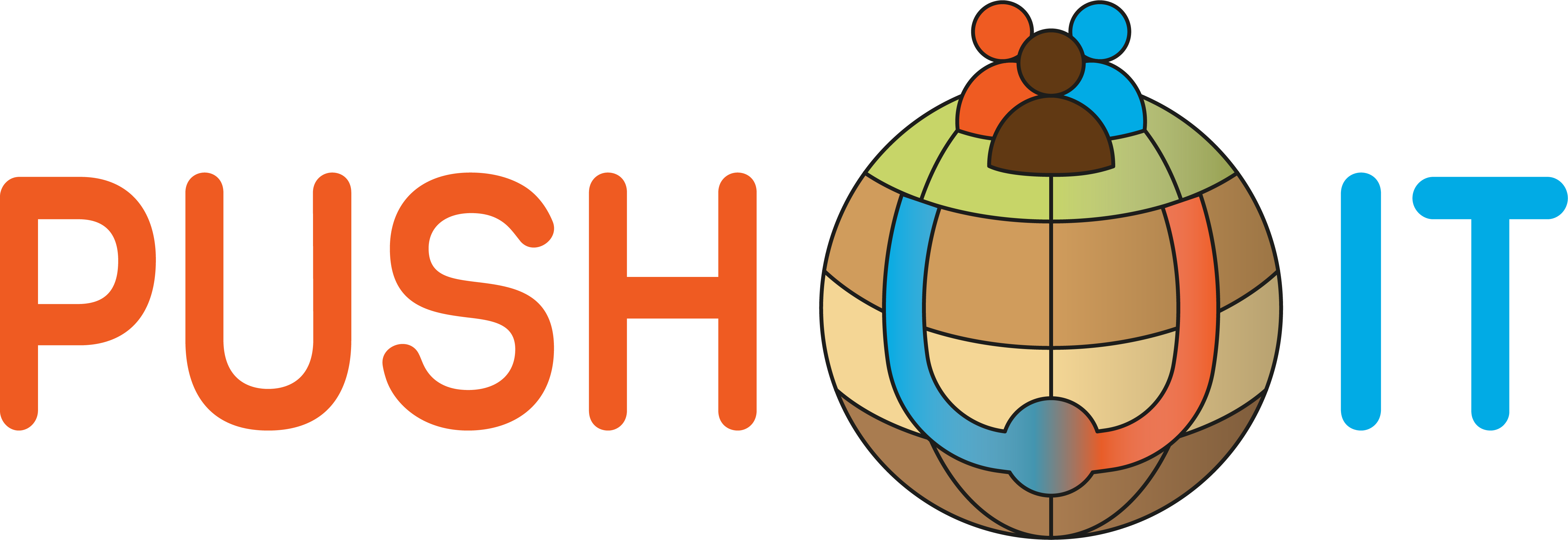Key lessons for local engagement in geothermal projects
In July 2024, we had the pleasure of hosting Amel Barich —geoscientist and Senior Project Manager at the Geothermal Research Cluster in Iceland— in our PUSH-IT webinars series on Societal Engagement. Amel talked about the lessons learnt in the Horizon2020 Crowdthermal Project about the social license to operate for geothermal projects.

The Crowdthermal Project is an initiative aimed to empower the European public to directly participate in developing geothermal projects with the help of alternative financing schemes (i.e. crowdfunding) and social engagement tools.
One of the main objectives of the project was to understand the requirements for social licencing and develop a Social Licence to Operate (SLO) model for the different geothermal technologies and installations. Originally stemming from the mining industry and natural resource extraction, SLO refers to the ongoing support for a development by local communities and stakeholders that goes beyond legal requirements and standard business practices [1][2]. Legitimacy, credibility, and trust are essential SLO components that contribute reaching three different levels of support for local developments, respectively— acceptance, approval, and identification [1][3][4].
Three case studies with multiple sites were selected in Hungary, Iceland, and Spain and validated the outcomes of the project. These differed in stage of development, scale of implementation, serving purpose, local geography and previous experience with geothermal energy, and communities and stakeholders involved. The key lessons learned for gaining a SLO for geothermal energy were:
Key lessons for local engagement in geothermal energy:
- Inform & address concerns. Addressing initial concerns through educational workshops, involving stakeholders in the planning process, and demonstrating tangible benefits and function of pilot projects enabled the removal of scepticism and enhanced acceptance, especially in the cases with lower familiarity with technology.
- Involve early. Early-on and active citizen involvement facilitates cultural and behavioural changes necessary to the successful development of geothermal projects and leads to higher levels of local acceptance.
- Get local support. Support of local government/municipality and a key entrepreneur leading a project are equally important as consideration of geographical, historical, cultural, political and social aspects of each case study.
- Communicate transparently in various ways. Transparency, clear communication channels, different formats of information and feedback exchange, and creation of collaborations with local experts fostered credibility and promoted good societal engagement practices.
References
[1] Boutilier, R.G. and Thomson, I. (2011) ‘Modelling and Measuring the Social License to Operate: Fruits of a Dialogue Between Theory and Practice’. International Mine Management, pp.1-10.
[2] Cotton, M., Rattle, I., and Van Alstine, J. (2014) ‘Shale gas policy in the United Kingdom: An argumentative discourse analysis’, Energy Policy, 73, pp. 427-438.
[3] Boutilier, R.G. (2014) ‘Frequently asked questions about the social licence to operate’, Impact Assessment and Project Appraisal, 32 (4), pp. 263–272.
[4] Bradshaw, M. and Waite, C. (2017) ‘Learning from Lancashire: Exploring the contours of the shale gas conflict in England’. Global Environmental Change, 47 pp. 28-36.

PUSH-IT is a project funded by the European Union’s Horizon Europe research and innovation programme under grant agreement No 101096566.
Funded by the European Union. Views and opinions expressed are however those of the author(s) only and do not necessarily reflect those of the European Union. Neither the European Union nor the granting authority can be held responsible for them.
